Zac Efron stars as Chickie in this misguided film about the Vietnam War shown at TIFF.
It has been nearly 5 years since Peter Farrelly won the Academy Award for Best Picture with Green Book in 2019, much to the chagrin of those who called the film out for its flimsy depiction of racial politics. Starring Zac Efron with appearances by Russell Crowe; Farrelly’s TIFF presentation of The Greatest Beer Run Ever succumbs to many of the same pitfalls that lent his previous film its signature, “we solved racism” quality. Once again, it appears that Farrelly is out of his depth, toting his unsolicited take on how his All-American protagonist can singlehandedly restore peace to a war-torn Vietnam. Like Green Book, The Greatest Beer Run Ever is also based on true events and a real group of friends.
This film is so arrogant. John ‘Chickie’ Donohue, an Irish Catholic from the streets of New York, watches helplessly as all of his closest friends from his tight-knit neighborhood are shipped off to fight in the Vietnam war. With his remaining crew of buddies, he sits around the bar he frequents while Bill Murray laments about how the depressing images of war are bringing down morale around the community. The Americans are winning! They don’t know what they’re winning, but they’re winning, nonetheless, and would like to see some positivity on the news to reflect that. In an attempt to raise everyone’s spirits, Chickie commits to making an epic beer run overseas to where his friends are stationed. By bringing a duffel bag of warm Pabst (Pabst?!) he can remind his buddies that his loved ones back home are thinking of them and hopefully, bring a much-needed smile to their faces. What Chickie fails to realize is that Vietnam is not a playground within which he can deliver brews to his friends. An entire country and its people are in upheaval, there is death everywhere you look and a lot of innocent civilians, as well as his friends, are fearing for their lives in the midst of a war that no one can understand. However, Chickie’s got a reputation around town as a deadbeat and a freeloader, so this is his chance to prove to everyone that he can really accomplish something.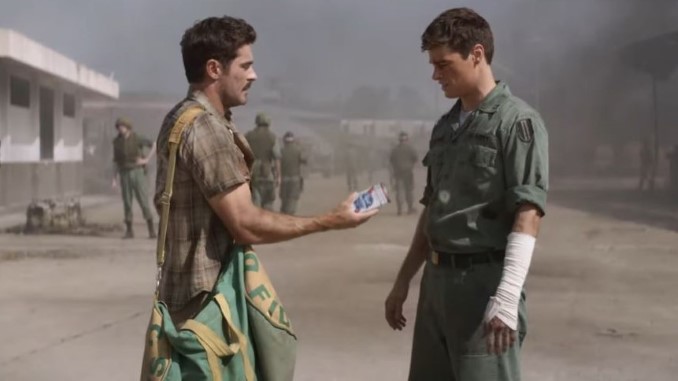
Before his departure, Chickie has some heated altercations with protestors that are advocating to end the war. Included in that bunch is his sister, Christine (Ruby Ashbourne Serkis). Chickie can’t stand to watch her be a part of something so unpatriotic, especially amidst the constant news circulating in their community that their friends are missing and dying. Christine tries to convince him that by protesting for peace, she is doing her part to keep these men safe, she doesn’t want to see any more members of her neighborhood drafted to fight in a fruitless conflict. Chickie stubbornly disavows her efforts, claiming that if the men fighting were to see these protestors devalue their sacrifice they would be heartbroken. So he hops abroad on a ship to Vietnam to go make a real difference by handing out beer.
Once he arrives in Vietnam, he requests a few days’ leave from the ship that he’s been working on to complete his mission. One would think that at this point, he would be in for a rude awakening, but Chickie struts about, making friends with the locals. He tries to find his way to his first friend’s base before heading into northern parts of Vietnam that have restricted access, due to how bad the fighting has gotten in those areas. When he runs into a group of journalists, who have all been staying in Vietnam and covering the war for months, he has no issue openly criticizing them for how their coverage is simply too sad. Don’t they know that no one at home wants to see that? Would it kill them to give everyone watching the war from the comfort of their living rooms a little hope? We now begin to wonder, what it will take for Chickie to realize that he hasn’t been dropped in the middle of an action movie.
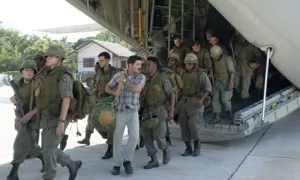
The men at his first stop are delighted to see him, and he learns some nifty tricks for fooling people into helping him get around the country. Impersonating the FBI, so it seems, goes a long way in convincing people to drop you off in places you have no business being. His second stop is quite literally in the middle of a battlefield. As Chickie dodges bullets and hops over dead bodies, it is shocking that it still has not occurred to him where he is. He is entirely unaffected by his friends begging him to go home, or hearing soldiers detail how PTSD has caused them to return for multiple tours because they don’t fit in anywhere else anymore. Chickie is so blinded by his own misguided patriotism that he refuses to grasp that everyone around him is suffering. They will all be left here to continue fighting while he delivers beers and boards a ship back to the safety of his home.
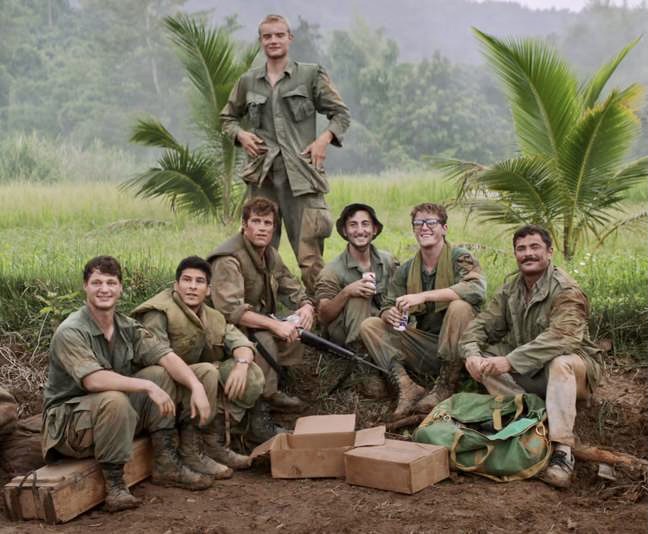
Chickie repeatedly puts other people in harm’s way or has them bend over backward to help him get where he needs to be. More often than not, it is the same people that he’s come there to spread joy to. When he approaches some complications getting back home, and the film ramps up towards its climax, is when all of the glaring flaws of this narrative are on full display. The local friends that he’s made lay dead in the street; a tasteless attempt to wrack up some pity. It’s shameful that a film that takes place in Vietnam has only two Vietnamese characters with speaking roles, and one ends up dead. The Vietnamese perspective is not only completely ignored in, The Greatest Beer Run Ever, but it is blatantly whitewashed and disrespected.
After the fighting heats up in his area, Chickie and his new journalist friend, Arthur (Crowe) run around the city trying to make sense of the chaos. Only then does he piece together that America might not actually be winning this war. No one is, and his government is pretty obviously lying to him. His recovery from a night of fighting is laced with some pretty amazing gems of dialogue such as:
“I never get away with anything.” he confides in Arthur not long before leaving a war-torn country completely unscathed.
“Give me a break,” he says to a woman working an overcrowded infirmary full of soldiers, after an explosion because she’s too busy to help him find his buddy. Hint: she of course does help him because this is Chicki’s world, we’re all just fighting the Vietnam War in it.
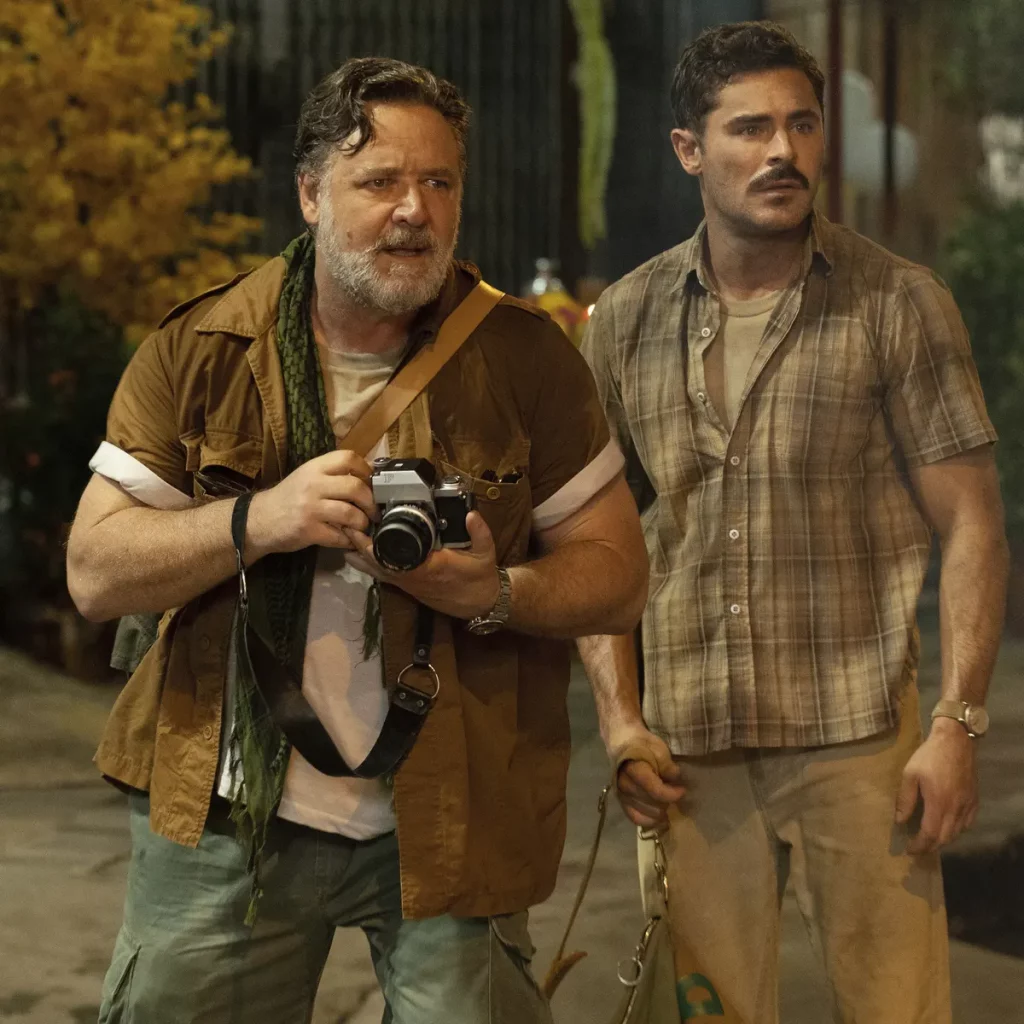
The entire third act consists of him, desperately trying to get out of a mess he made for himself. Chickie’s “main character energy” is so abhorrently misplaced in this setting. In the end, Chickie finds himself back at home surrounded by loving friends and family, who are so proud of him for making his noble voyage. Because of everything he’s seen, he has a long-overdue moment of reckoning where he confesses that he may not have actually helped anyone on his trip. But, his alternative hedonism is quickly rewarded by his community who have all been brought some sense of peace, knowing that their sons have been checked in on. These final interactions of the film leave us with the impression that none of Farrelly’s characters feels genuinely human, but that, Chickie lives in a fabricated world that is tailored to his comfort and success. Which is absolutely astonishing, considering that these are real people. Instead, this entitled man drops himself in the midst of death and suffering, helps no one, and learns a lesson that he could have learned at home by, perhaps, thinking a little more critically. Or listening to those around him, like his sister, who has been telling him all along that the images he’s been fed by his government might not be accurate.
The Greatest Beer Run Ever is currently streaming on Apple TV+
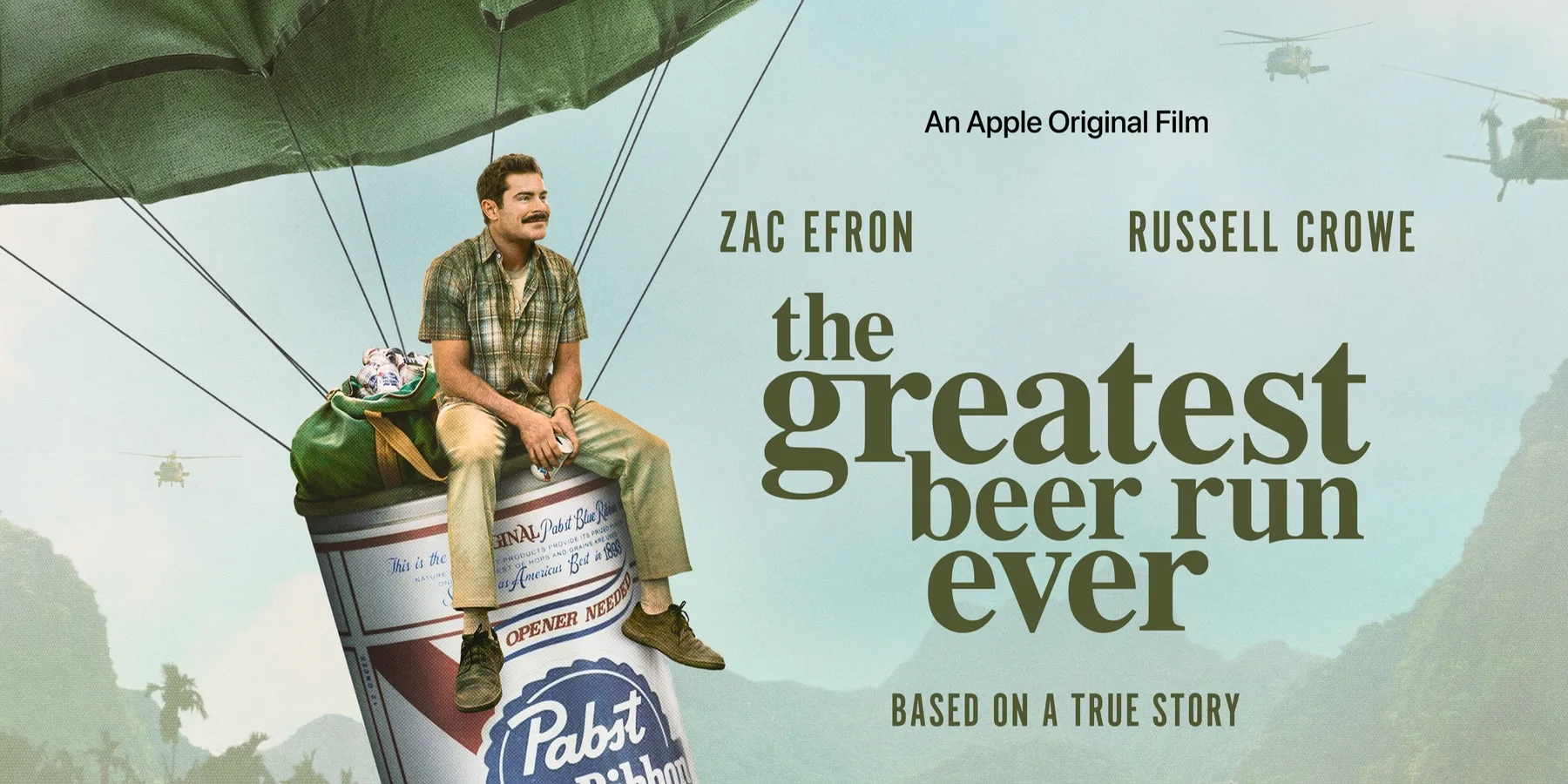
Comments